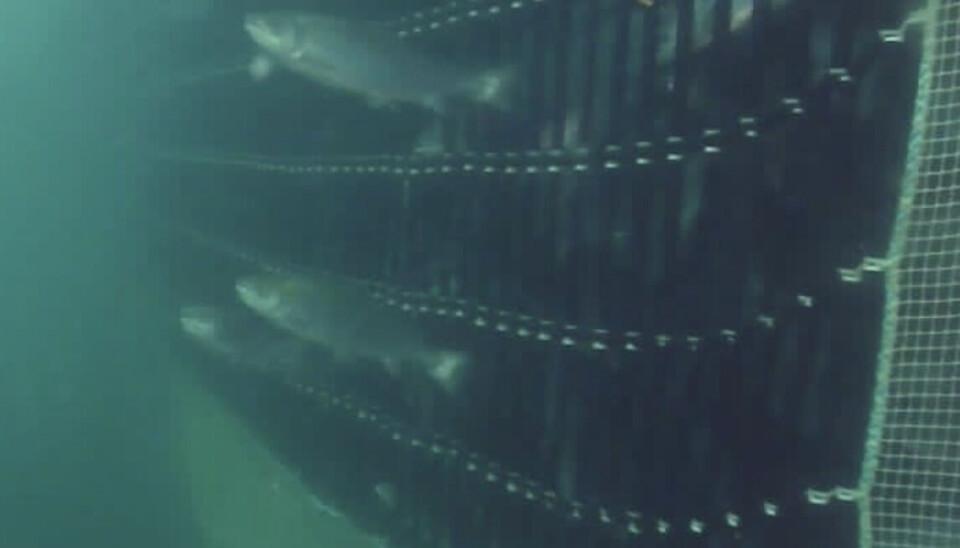
Passive grading delivers net gain for Mowi
Farm manager reports spike in fish appetite after salmon are sorted by size during split
Teams at Mowi Scotland’s Greshornish and Portnalong sites have reported very positive results for both fish size uniformity and increased appetite after using passive graders to sort salmon by size at the same time as dividing crops of fish among more cages to allow them more room as they grow.
A crop of fish is typically graded just once, most commonly aboard a service vessel at harvest time by being passed over rounded metal bars spaced at different widths after first passing over a dewatering table.
Passive grading involves installing a panel in the seine net used to crowd fish within a pen ahead of farming operations such as transfers between pens via wellboat. The panel has holes that the smaller fish can swim through but that are too small for the larger fish.
Grading the fish earlier in the farming cycle – in this case at 2kg - means bigger fish won’t outcompete smaller fish for feed, something that can exacerbate existing size differences over time.
Logical move
Speaking to Mowi Scotland’s staff newsletter, The Scoop, Greshornish farm manager Darren Wilson said: “When we split down populations for final grow out, we are seining fish at the time anyway, so it seemed logical to install a grade panel into the seine net. We went for a smaller size grade that would split size at two kilograms.
“The split and grade went really well, with the passive grader offering a stress-free way of grading for size because the fish never leave the water (unlike on-board dewatering and grading). Not only do we benefit from a tighter size range moving toward the harvest window, but we also noticed a spike in appetite immediately following the split. This additional growth will help us achieve our target weights ahead of schedule and potentially reduce time at sea.”
Although the fish are piped into a wellboat for transfer, they technically never leave the water as there is no requirement for dewatering.
Mowi Scotland production director Sean Anderson said: “Well done to our staff for taking this initiative and working some long shifts to get this done. By modifying our equipment and adding one step during our split down procedures, we are already seeing it pay back immediately with improved biologicals.”
A Mowi spokesperson said the practice of passive grading while splitting fish populations would now be encouraged at other sites, but added that environmental factors on the day, such as oxygen levels, plankton, and stock health, will also determine how the fish can be handled.
























































